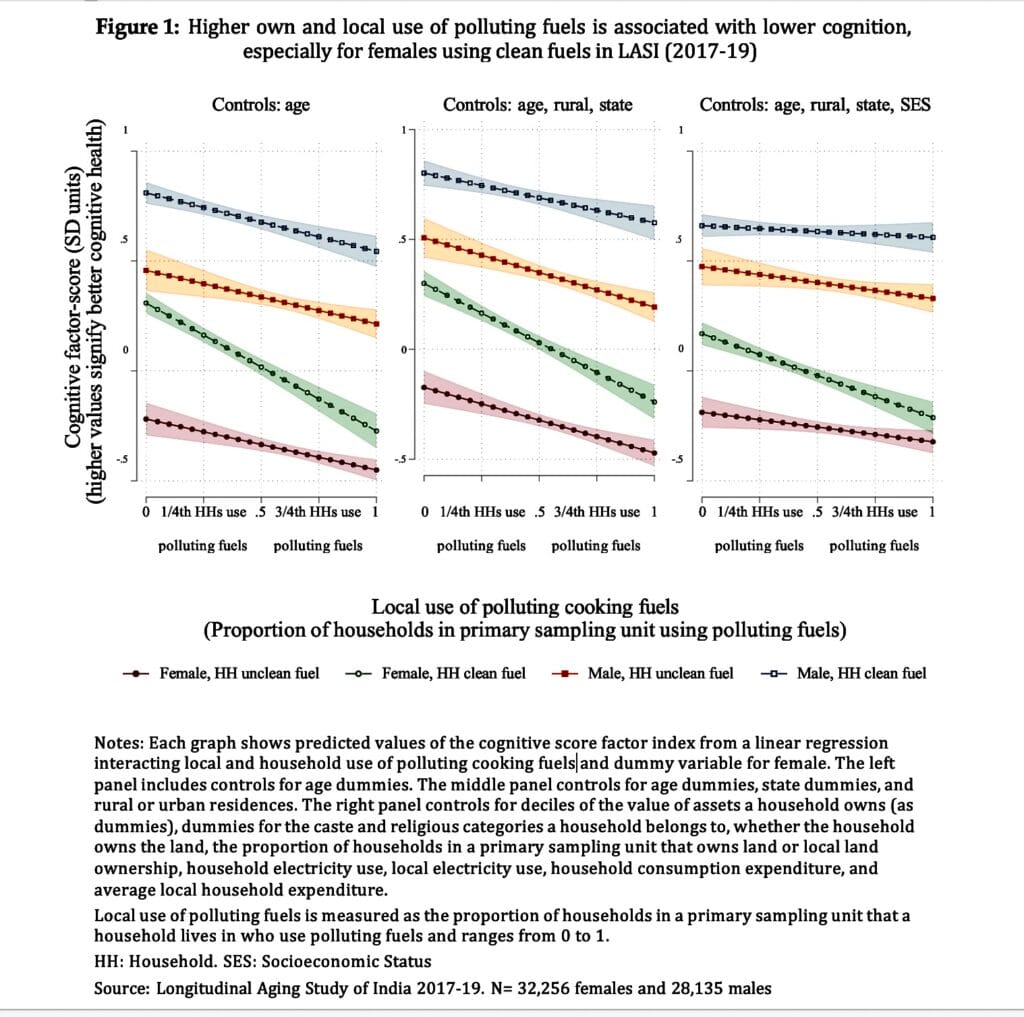Aging
Polluting Cooking Fuel Use and Adult Cognitive Health: Externalities and Gender Disparities in LMICs Sneha Sarah Mani* Sneha Sarah Mani Aashish Gupta Irma T Elo
Scientific understanding of how environmental hazards affect cognitive health in older adults, particularly in low- and middle-income countries (LMICs), remains limited. As Alzheimer’s disease and related dementias become an escalating public health concern, the need to address contributing factors becomes ever more urgent. By 2030, over 80% of individuals aged 60 and above are expected to live in LMICs, where household use of polluting fuels for cooking and heating is widespread. This reliance on polluting fuels is a major contributor to global ambient air pollution—accounting for nearly one-sixth of total emissions—and is predicted to increase the number of adults at risk of cognitive impairment and dementia.
Using two data sources from LMICs that measure household-level polluting cooking fuel use and cognitive function, this study examines the role of polluting cooking fuel use at the household and community level on cognitive function as well as gender differences in these associations. The analysis uncovers a clear pattern: cognitive health tends to be poorer among individuals from households that rely on polluting fuels and among residents of neighborhoods where such fuel use is more common. Additionally, we also observe that local use of polluting fuels has a greater negative impact on cognitive health among members of households that use clean fuels. These relationships persist even after accounting for individual socioeconomic status and local economic differences, suggesting a robust association between polluting fuels and cognitive outcomes. Moreover, the study highlights gender disparities in these associations. Women living in households where polluting fuel use prevails exhibit the lowest predicted cognitive scores. This result is consistent with women being the primary cooks in households and consecutively having the greatest exposure to polluted cooking fuel use.
Our findings reveal the substantial direct influence and negative externality of polluting fuel use in LMICs and help understand why overall cognitive health may be poor in these settings. Moving away from polluting fuels toward clean fuels may not only reduce individual risk but also community-level exposure to air pollution, contributing to better cognitive health in older ages.

